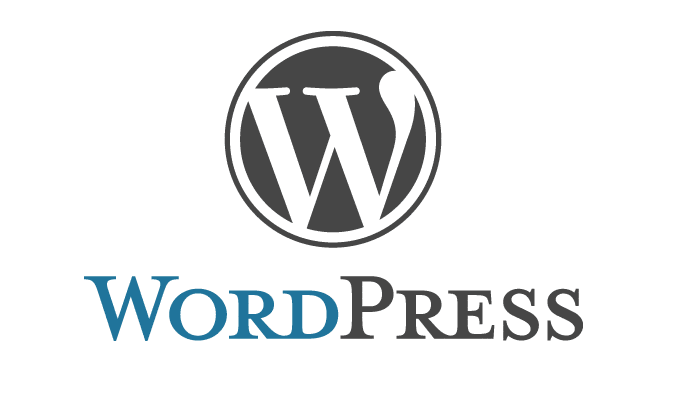Shopify versus WordPress – which one is better? This is a question you’d probably wind up asking if you are a new wholesale business in Australia, and in this post, will briefly go through each of these two platforms.
Whether you expect to build a fully functioning online store or add eCommerce usefulness to a current website, there are various methods available. However, you may be trying to choose whether WordPress or Shopify is the better eCommerce platform.
To be clear, there is no “better” platform than the other, but each has its own strengths and weaknesses. It’s best to consider both before you commit to either platform.
Both are goliaths in the web building space, yet they do cater to very different needs. Before the end of this comparison, you should have a clear idea of which stage will serve your business’ necessities best.
Before we dive deep in, let’s first run through a snappy outline of the two platforms.

What Is Shopify?
Shopify is an eCommerce platform that allows anyone to set up an online store and sell their products. This online business web designer has features for everybody from amateurs (without any technical or design skills) to e-commerce specialists (who can edit HTML or CSS codes to customise their stores more extensively).
Shopify is a product as a service (‘SaaS’) tool— this implies that you don’t possess a copy of the product. Instead, you pay a monthly expense to use it. Being a web application runs in the cloud – so as long as you have a web browser and the internet, you can manage your store from anywhere.
What is WordPress E-commerce?
WordPress is the most popular content management system (CMS) in the world. It has become the most popular CMS for creating and managing blogs and websites. It is a free and open-source content management system, which means it is developed and maintained by the community and is free for anyone to use and contribute to.
With only a couple of clicks, your WordPress site transforms into a completely functional e-commerce site. But you will need to use third-party tools like WooCommerce to add e-commerce features to it. It’s worth mentioning that WooCommerce is also a free plugin.

The Comparison between Shopify and WordPress
Both Shopify and WooCommerce are potent options. Here are some significant differences that are important to consider before making your choice.
Shopify Vs. WordPress: Ease of Use for Wholesalers
Shopify is beyond question the more manageable platform to use. In contrast to WordPress, you don’t have to have knowledge or grasp of coding, nor do you need to install additional software that permits you to sell on the internet. With Shopify, all the fundamental online business features are underlying.
Shopify’s is also arguably slightly more contemporary and ‘clean’ in its interface and appearance.
Which Option is Best for Payment Processing?
Perhaps the essential part of any online wholesale business is payment processing. Without an approach to receive payments from your clients, you’re not going to be in business for long.
The most significant distinction between Shopify and WordPress is the charges you pay to accept payments, You’ll pay fees to the payment gateway, bank, or merchant account provider no matter what e-commerce platform you use, though, with Shopify, you’ll pay additional fees to them.
They charge a monthly subscription that ranges between US$29 – US$299. This doesn’t include subscription fees for third-party plugins that doesn’t come standard with Shopify. What’s more, if you accept cards in your store, Shopify’s rates start at 2.9% in addition to a 30-cent flat rate price.
With WordPress, you don’t pay any additional charges past what you’ll spend on your payment processor. Commonly used is Stripe, which is the same for Shopify.

Which is better for SEO?
Search Engine Optimisation (SEO for short) is the way toward expanding your site’s visibility on web indexes, by tweaking some aspects.
Shopify authorises you to do this in various manners, including adding explicit titles and descriptions that show up in search results for each site page (metadata) and modifying your URLs and site structure. Hence, it’s easier for search engines to perceive, or ‘crawl’.
WordPress SEO, you won’t be surprised to learn, is to be done through external plugins.
Flexibility for Wholesale Users
Of the two platforms being talked about, WordPress is undoubtedly the more adaptable! It’s been around longer and is significantly more generally utilised as a platform, implying that the number of plugins, templates and integrations for the platform outweighs what’s accessible at Shopify.
Also, the open-source nature of WordPress and how wholesalers have absolute authority over their own hosting implies that you can control WordPress to make bespoke sites more effectively than Shopify.
Customer Help and Support
Shopify’s client help is best in class. You can get all day; every day helps in various ways, including by phone call, email, live chat, and by means of Shopify’s on-location Help Center.
WordPress is distinctive in that there is no immediate assistance. There are just assets, for example, forums, that offer help.
- We Recommend Shopify if
You don’t mind paying on subscription basis, and you have limited technical knowledge and need to make your own online store. It’s easy to use and all the basics of an online store are included.
- We Recommend WordPress if
You have some experience in setting up domain, hosting etc or you have the budget to pay for a developer’s assistance. You’ll have an array of choices regarding themes and plugins. However, the initial cost to set up a WordPress Ecommerce store will be higher than Shopify but you won’t be required to pay a monthly subscription.

Conclusion
Shopify tends to cost more over the long term and as your business grows. This because you will need additional features and plugins to scale up your business, and Shopify plugins can be quite expensive.
Whereas WordPress will require more work and upfront set up cost, but if you can get by with available free plugins then you will only need to pay for your yearly hosting and domain name.





